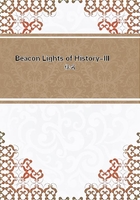
第49章
Some of these students came to study medicine, others law, but more theology and philosophy. The headquarters of theology was the Sorbonne, opened in 1253,--a college founded by Robert Sorbon, chaplain of the king, whose aim was to bring together the students and professors, heretofore scattered throughout the city. The students of this college, which formed a part of the university, under the rule of the chancellor of Notre Dame, it would seem were more orderly and studious than the other students. They arose at five, assisted at Mass at six, studied till ten,--the dinner hour;from dinner till five they studied or attended lectures; then went to supper,--the principal meal; after which they discussed problems till nine or ten, when they went to bed. The students were divided into hospites and socii, the latter of whom carried on the administration. The lectures were given in a large hall, in the middle of which was the chair of the master or doctor, while immediately below him sat his assistant, the bachelor, who was going through his training for a professorship. The chair of theology was the most coveted honor of the university, and was reached only by a long course of study and searching examinations, to which no one could aspire but the most learned and gifted of the doctors. The students sat around on benches, or on the straw.
There were no writing-desks. The teaching was oral, principally by questions and answers. Neither the master nor the bachelor used a book. No reading was allowed. The students rarely took notes or wrote in short-hand; they listened to the lectures and wrote them down afterwards, so far as their memory served them. The usual text-book was the "Book of Sentences," by Peter Lombard. The bachelor, after having previously studied ten years, was obliged to go through a three years' drill, and then submit to a public examination in presence of the whole university before he was thought fit to teach. He could not then receive his master's badge until he had successfully maintained a public disputation on some thesis proposed; and even then he stood no chance of being elevated to a professor's chair unless he had lectured for some time with great eclat. Even Albertus Magnus, fresh with the laurels of Cologne, was compelled to go through a three years' course as a sub-teacher at Paris before he received his doctor's cap, and to lecture for some years more as master before his transcendent abilities were rewarded with a professorship. The dean of the faculty of theology was chosen by the suffrages of the doctors.
The Organum (philosophy of first principles) of Aristotle was first publicly taught in 1215. This was certainly in advance of the seven liberal arts which were studied in the old Cathedral schools,--grammar, rhetoric, and dialectic (Trivium); and arithmetic, geometry, music, and astronomy (Quadrivium),--for only the elements of these were taught. But philosophy and theology, under the teaching of the Scholastic doctors (Doctores Scholastici), taxed severely the intellectual powers. When they introduced dialectics to support theology a more severe method was required. "The method consisted in connecting the doctrine to be expounded with a commentary on some work chosen for the purpose.
The contents were divided and subdivided, until the several propositions of which it was composed were reached. Then these were interpreted, questions were raised in reference to them, and the grounds of affirming or denying were presented. Then the decision was announced, and in case this was affirmative, the grounds of the negative were confuted."Aristotle was made use of in order to reduce to scientific form a body of dogmatic teachings, or to introduce a logical arrangement.
Platonism, embraced by the early Fathers, was a collection of abstractions and theories, but was deficient in method. It did not furnish the weapons to assail heresy with effect. But Aristotle was logical and precise and passionless. He examined the nature of language, and was clear and accurate in his definitions. His logic was studied with the sole view of learning to use polemical weapons. For this end the syllogism was introduced, which descends from the universal to the particular, by deduction,--connecting the general with the special by means of a middle term which is common to both. This mode of reasoning is opposite to the method by induction, which rises to the universal from a comparison of the single and particular, or, as applied in science, from a collection and collation of facts sufficient to form a certainty or high probability. A sound special deduction can be arrived at only by logical inference from true and certain general principles.